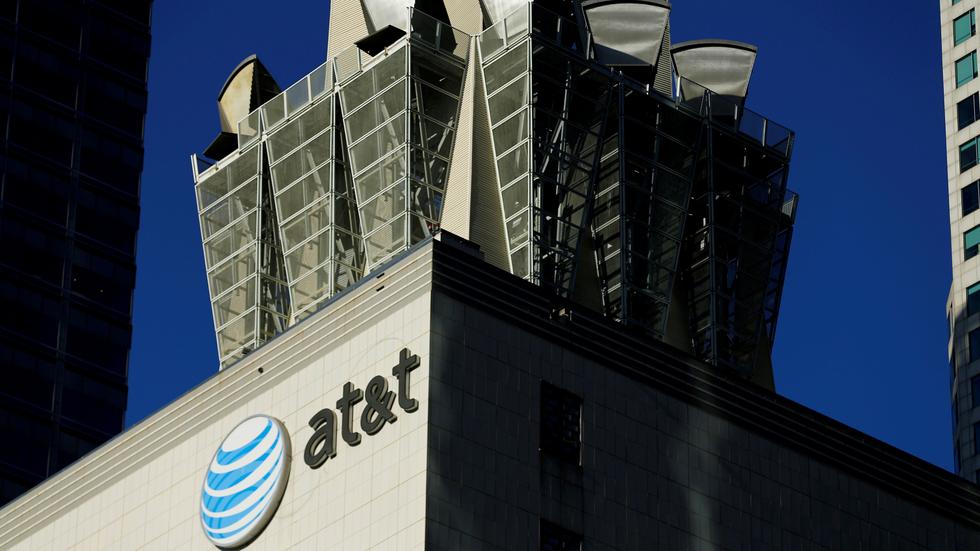Judy Woodruff: The Department of Justice announced it is suing to block a mega-merger between media giants AT&T and Time Warner, a deal initially valued at $85 billion. It is the first major antitrust case taken up by the Trump administration. Lisa Desjardins has the story.
Lisa Desjardins: The Justice Department said this merger would have harmed consumers. AT&T fired back and said it will challenge the government's move in court. Some observers have openly wondered if the decision is influenced by the president's continuing battle with CNN, which is owned by Time Warner. A short time ago, AT&T CEO Randall Stephenson said he didn't know if CNN played into the decision, but it was an open question. David Shepardson of Reuters has been covering this story, and he joins me now. David, wow, what a story. Let's start with these two companies. At their core, they don't compete. They're related businesses. But why is DOJ arguing that they violate antitrust laws?
David Shepardson: So, you're right. These typical vertical mergers, companies which don't directly overlap, generally, those go through. But in this case, the Justice Department is saying that the combined company will have too much power. AT&T owns DirecTV, a big pay TV subscriber. It obviously owns mobile phones. And it would be able to use that content to charge its rival distributors, like Comcast, hundreds of millions of dollars more per year, as well as pass those costs on to consumers. So the big argument is going to be, will a judge buy that a larger, vertically consolidated company poses a threat, or is it a better competitor to new companies like Netflix and Amazon?
Lisa Desjardins: AT&T fired out a very fiery statement. They call this a radical and inexplicable departure in the law. Is this unprecedented as far as the Justice Department goes? And what is AT&T saying in response?
David Shepardson: So, it is not unprecedented, but it's been about 50 years since the government took a vertical merger to court. And, certainly, by comparison, in 2011, the Obama administration allowed Comcast to acquire NBC Universal, a similar vertical merger. But a lot has changed. There are serious concerns about the -- will companies get too large, have too much market power? But, on the other hand, AT&T says, look, this is settled law. If you look at the marketplace, given all the competitors, people are more limited in the ability to raise prices in this competitive marketplace. They deny the government's allegations. But it goes back to the central question about whether then candidate Donald Trump's opposition to the merger and his criticism of CNN were a factor in this decision.
Lisa Desjardins: You keep bringing up vertical merger. And I know a lot of folks will be hearing that.
David Shepardson: Right.

Lisa Desjardins: But let's talk about the scope of these two companies, what they own.
David Shepardson: Sure.
Lisa Desjardins: They have massive influence in U.S. and global life. And can you talk about why they wanted to get together in the first place and what the effect would be if they did?
David Shepardson: Right. You're absolutely right. This is a huge company. Beyond DirecTV and AT&T's mobile service, Time Warner owns HBO, TNT, CNN, a lot of -- a studio, big assets that make a lot of content. And so AT&T's argument has been to compete with Facebook and Google, the companies that are getting huge control of the advertising market on the Internet, that they need to be able to use the data from these three different companies in order to compete with these other rivals. So, you know, their argument is, we have to get bigger in order to compete. And the government's argument is, if you allow them to get this big, they will be able to deny that content to a rival, and you can only get HBO potentially on DirecTV vs. Comcast, if they didn't agree to pay higher prices.
Lisa Desjardins: Right. You hit on this, so I want to get at what this would mean for consumers. This might be oversimplifying. But, to me, it's almost as if Wal-Mart wanted to buy like LEGOs, a huge product, two big companies, and they wanted to try and control that market. How would this affect consumers who, say, get their entertainment not through Time Warner, through Comcast or another company?
David Shepardson: Right. So, by your analogy, what would typically happen, and what happened in Comcast, NBC Universal is the Justice Department asked for behavioral conditions. That is, the company -- Comcast had to agree not to treat how it used that content differently than other companies, other rival distributors. And, in fact, AT&T had raised questions about that in 2011. So, you know, the difference is here the government is not seeking a behavioral condition, but rather to sell off certain assets. They asked AT&T to either sell off DirecTV or Turner Broadcasting, which includes CNN, so to get smaller, rather than agree to behavioral changes.
Lisa Desjardins: We don't want you to have that opportunity to affect those marketplaces.
David Shepardson: Right.
Lisa Desjardins: Quickly -- I'm sorry to make this a short question -- but can you talk about the CNN factor here and the timing of that?
David Shepardson: Sure. Well, just last week, President Trump was again criticizing CNN. As you know, as a candidate in 2016, President -- then candidate Trump said he wouldn't allow the merger to go through. Since then, he's not directly commented on it, but AT&T is clearly going to make whether the president exercised influence over the Justice Department as a result of his anger with CNN as part of the case. That's really an open question whether a judge will agree.
Lisa Desjardins: David Shepardson, what a case, at Reuters. Thank you for joining us.
David Shepardson: Thank you.











